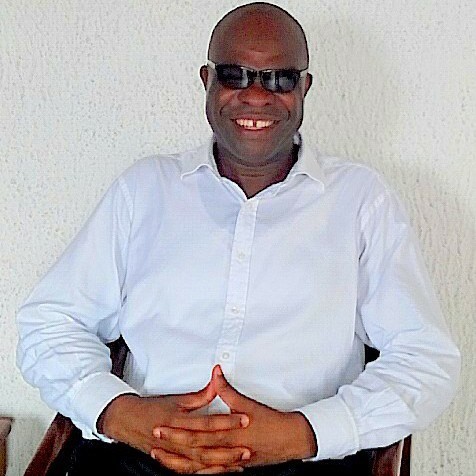“Il giorno dopo”, edito da Ponte Sisto è ad un tempo romanzo di
formazione e appassionata e dolente denuncia dei disastri causati dai
conflitti contemporanei, che l’autore, portavoce italiano dell’Unicef,
tocca con mano ad ogni visita nei campi profughi del Medio Oriente e
dell’Africa.
Un libro che Iacomini abbina ad uno spettacolo teatrale, ai numerosi dibattiti soprattutto nelle scuole di tutt’Italia.

Figlio di un padre appassionato, che lo ha contagiato con i suoi
ideali sin da quando era bambino, Enrico entra in politica e inizia così
una militanza durata quindici anni, un percorso denso di incontri,
confronti, grandi slanci e bocconi amari, fino a un crudele verdetto
finale. Con toni sempre sinceri e ironici, Enrico ci racconta la nuova
missione che lo aspetta dopo la politica, quella umanitaria. Inizia a
viaggiare per il mondo, diventa testimone della fame, delle guerre e
della povertà, lotta attraverso la scrittura per denunciarle al mondo
occidentale. La visita al campo profughi di Zaatari e l’incontro fatale
con una donna siriana, gli disvelano una verità ancora più grande. Deve
compiere un ultimo cammino, quello dentro se stesso, oltre gli attacchi
d’ansia, oltre le scuse e le bugie. Ad accompagnarlo, la consapevolezza
che “non c’è più tempo per mentire, ma solo per iniziare una nuova vita.
A partire da oggi, dal giorno dopo”.
 “In Italia tra il 2015/2016 ne sono arrivati 18.000, di 6.000 si
sono perse le tracce, 2.000 di questi sono vittime dello sfruttamento
minorile, 700 sono morti in mare. Nel mondo ci sono 250 milioni di
bambini che vivono in zone di conflitto, 87 milioni hanno meno di sette
anni. La guerra in Siria in cinque anni ha provocato 5,5 milioni
rifugiati, la metà sono bambini, nelle 20 città sotto assedio, senza
cibo e acqua, i bambini intrappolati sono quasi quattro milioni.” Andrea
Iacomini
“In Italia tra il 2015/2016 ne sono arrivati 18.000, di 6.000 si
sono perse le tracce, 2.000 di questi sono vittime dello sfruttamento
minorile, 700 sono morti in mare. Nel mondo ci sono 250 milioni di
bambini che vivono in zone di conflitto, 87 milioni hanno meno di sette
anni. La guerra in Siria in cinque anni ha provocato 5,5 milioni
rifugiati, la metà sono bambini, nelle 20 città sotto assedio, senza
cibo e acqua, i bambini intrappolati sono quasi quattro milioni.” Andrea
Iacomini

Andrea Iacomini, portavoce di UNICEF Italia @UNICEF/Pacifico
Andrea Iacomini, giornalista, è il
portavoce dell’UNICEF Italia, nasce a
Roma l’11 gennaio 1974. Studia al Liceo-ginnasio statale
“Giulio Cesare” di
Roma, impegnandosi sin da giovanissimo nel mondo dell’associazionismo
politico, scoutistico e sociale. Laureato in Scienze Politiche con
indirizzo internazionale e comunitario presso l’
Università LUISS
“Guido Carli” di Roma, si occupa di tematiche relative all’Europa e alla
cooperazione internazionale, lavorando dapprima come esperto di Fondi
strutturali europei e successivamente quale responsabile stampa dell’
OICS – Agenzia delle Regioni per la Cooperazione Internazionale. Diplomatosi presso la Scuola di giornalismo dell’
Università “Tor Vergata” a Roma,
giornalista professionista, nel
2006 diventa portavoce dell’Assessorato alle Politiche per l’infanzia e la famiglia del
Comune di Roma. Nel
2008 approda all’UNICEF Italia con il ruolo di Capo Ufficio Stampa e poi (2012) di
Portavoce nazionale, incarico che ricopre tutt’oggi.
Blogger e scrittore, cura uno spazio di approfondimento su
Huffington Post Italia
ed è autore di numerosi editoriali e articoli su tematiche legate
all’attualità e alla politica estera su numerose riviste e sui maggiori
quotidiani nazionali. Negli ultimi tempi ha condotto
un’intensa attività sui media (interviste, articoli, approfondimenti sulle principali testate tv, radio, giornali, web) contro l’eccidio di bambini in
Siria, in
Iraq
e Gaza, temi che tutt’oggi lo vedono in prima linea con iniziative,
missioni sul campo e mobilitazioni. Altre tematiche di speciale impegno
sono state le campagne UNICEF per il contrasto alla malnutrizione
infantile nel Sahel (#SahelNow), la campagna contro la mortalità
infantile “Vogliamo Zero”, quella sulla siccità e la conseguente crisi
alimentare nel Corno d’Africa e la campagna per la riforma della legge
sulla cittadinanza e il diritto alla non discriminazione per i minori di
origine straniera “IO come TU”. Ha tenuto
lezioni e seminari su
tematiche relative ai diritti dell’infanzia, allo sviluppo e alle
emergenze umanitarie presso le Università di Firenze, Milano (Cattolica e
Statale), Catania, Roma (La Sapienza, LUISS e Roma Tre), Teramo,
Foggia, Bari, Benevento, Torino. È Direttore responsabile della rivista
per i sostenitori dell’UNICEF Italia
“Dalla parte dei bambini”. Nel 2007 ha pubblicato il libro
“Buona strada”. Con l’UNICEF ha compiuto missioni sul campo in
Ghana, Sierra Leone, Libano, Siria, Giordania, Iraq. A maggio 2014 è stato
ospite d’onore del Premio Luchetta-Hrovatin
quale riconoscimento della sua intensa attività per i bambini siriani.
Nel settembre 2014 è stato insignito dalla Fondazione “Riccardo
Tanturri” del
“Premio Scanno” per la categoria “Valori”. Nel 2014 e nei primi mesi del 2015 ha girato scuole, università, piazze, eventi con il monologo
“In viaggio”, un racconto esperienziale attraverso immagini, racconti, video e storie dal campo, che ha toccato oltre 80 città.

















